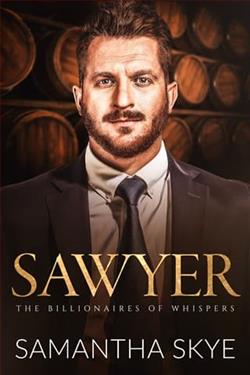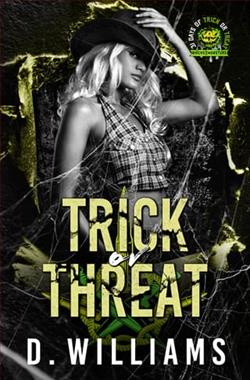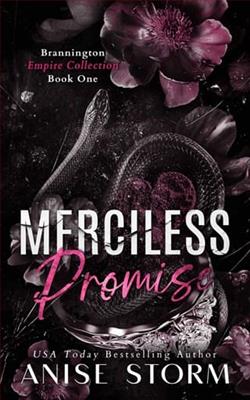Page 2 of Paranoia
Rachel flinched as more noises came from inside the house. Nothing at all like the initial blast, but loud pops and crackles.
Two thoughts hit her at the same time. Her brother was dead. And if this woman hadn’t stopped to let the kids pet her dog, they all would be dead too.
Then she started to cry.
CHAPTER 3
I WASN’T USED to wearing a tie. It was one of those things I didn’t have to worry about in my day-to-day life. Unfortunately, I was about to attend a funeral. A cop’s funeral. A retired cop who’d died too soon. I guess that’s how we feel about anyone we like and respect who passes. Lou Sanvos had spent most of his career as a detective in narcotics. Like a lot of people, I lost touch with Lou after he retired about ten years ago.
The Annunciation Greek Orthodox Church on West 91st looked like something out of a Gothic literary story. Tucked in the middle of Manhattan, the stone walls and tower seemed somewhat out of place. And although I’d passed it about a million times in my life, this was the first time I’d ever been inside. It somehow seemed more solemn than Holy Name, the Catholic church my family attended.
There were about 150 people here, a decent crowd for a guywho’d retired almost a decade ago. I’d brought my new twenty-four-year-old partner, Rob Trilling, with me. He was having a hard time making contacts within the department, mainly because he was so quiet, and also because he was technically still on temporary assignment to Manhattan North Homicide. He couldn’t work a case solo yet. Currently, he was helping Detective Terri Hernandez with an investigation involving a gang responsible for at least two recent homicides. I figured there’d be a few people at this funeral still on the job who I could introduce him to. Besides, I liked having Trilling around. He was entertaining, quirky and unpredictable.
As we slipped into a pew near the rear of the church, I turned to Trilling and said, “You said you were a little weird, and that you like funerals. What do you think of this one so far?”
The young man almost smiled. I’d realized by now that Trilling wasn’t as gloomy and brooding as he often seemed. “I don’t necessarilylikefunerals, Bennett,” Trilling said. “I like the traditions and rituals. Back in Montana, I was in school with some kids from the Blackfeet Nation. When one of their own died, they had four days of mourning. And also cut their hair short to show that they were grieving. That kind of stuff impresses you as a kid.”
“After a funeral like this, we usually hold a wake at a bar and tell stories about the departed. That’s the NYPD tradition.”
Trilling said, “My grandfather always said that going to a funeral is the one thing that you can never expect any repayment for. The deceased can’t return the favor and come toyourfuneral. It’s sort of an act of good faith and respect. I always thought that was a good way to look at funerals.”
We watched silently as an honor guard marched down the center aisle of the church.
Trilling leaned in close and said, “I know Sanvos died in a car accident. What happened?”
I kept my voice low as a decidedly non-Catholic priest started to speak at the pulpit. I said, “Lou retired to White Plains to be near his kids. I heard he lost control of his car somehow and drove right through the front window of a store. The car caught fire. Ironically, the store he crashed into was a fire equipment and safety store.”
“It looks like he was popular. I’ve been to funerals with only three or four people in attendance.” Trilling looked around at the turnout.
“Aside from a long career in the NYPD, Lou did a lot for youth groups, especially in the Bronx. He really felt like the key to solving the gun crisis, as well as crime in general, was to provide kids with a safe place to grow up with decent role models. He focused on the worst neighborhoods that got the fewest resources.”
Trilling mumbled, “I can see why you two were friends.”
That might’ve been the nicest thing my young partner had ever said to me.
CHAPTER 4
AFTER THE SHORT, official reception at the parish house of the church, I dragged Trilling to the Irish Rose, one of Lou’s favorite pubs. As soon as we stepped through the old wooden doorway, it was like entering another universe. The place was absolutely packed. Most of the people who’d attended the funeral were there, plus a bunch of cops just getting off shift, some still in uniform. There was a certain subdued rowdiness that Lou would’ve appreciated. The Saturday afternoon atmosphere magnified the emotions.
I nodded to half a dozen people as we walked through the crowded pub. Somehow we found a couple of stools at the far end of the bar. Without even asking, a stout bartender with a fancy curled mustache set down two Guinnesses in front of us.
A short, balding Black man with thick glasses crawled up onto a table and started banging a metal tray with a serving spoon. Iturned toward Trilling and said, “That’s Dave Sharp. One of the truly great guys in the NYPD.”
Sharp waited for everyone’s attention. “I’ll let you get back to drinking soon enough. I just wanted to remind everyone why we’re here. Lou Sanvos will never be forgotten in this town. His support for youth centers is unparalleled. Lou’s wife, Margaret, tells me she’s fine financially and that any money people might want to donate should go to Lou’s favorite cause: helping young people.
“I’m going to pass around the bucket, and anyone who feels like it can throw in a few bucks. We’ll split it between the two youth centers in the Bronx Lou worked so hard to build.”
Someone came up and tugged on Dave Sharp’s sleeve. He leaned down, then turned to the crowd and said, “And even though it’s not official, let’s not forget our own Celeste Cantor, who’ll be retiring soon and running for New York City Council. We’re hoping that’s just a stepping stone to bigger and better things.” That comment got a loud round of applause as Inspector Celeste Cantor—an attractive fiftysomething woman dressed in a dark-blue pantsuit and not her usual uniform with more ribbons and medals than a nineteenth-century Bavarian count—stood up and waved to everyone in the bar.
Trilling said, “Cops can run for political office?”
“You have to retire first. If she’s half as good a City Council member as she is a cop, we’ll all be in better shape soon.”
Cantor smiled when she noticed me at the corner of the bar. She pointed directly at me and started marching in my direction, fending off a few people trying to corner her as she approached.
After she gave me a hug, I introduced her to Rob Trilling. Cantor smiled and said, “We’ve both come a long way from patrol work in the Bronx, haven’t we, Mike?”
I turned to Trilling and said, “Inspector Cantor was part of a narcotics squad when she was a lowly sergeant. They called themselves the Land Sharks, after an oldSaturday Night Liveskit. It only took a couple of months before every dealer in the city took notice and worried about ‘the Sharks’ coming onto their turf. Even the commissioner referred to them as ‘the Sharks’ during a news conference.”















